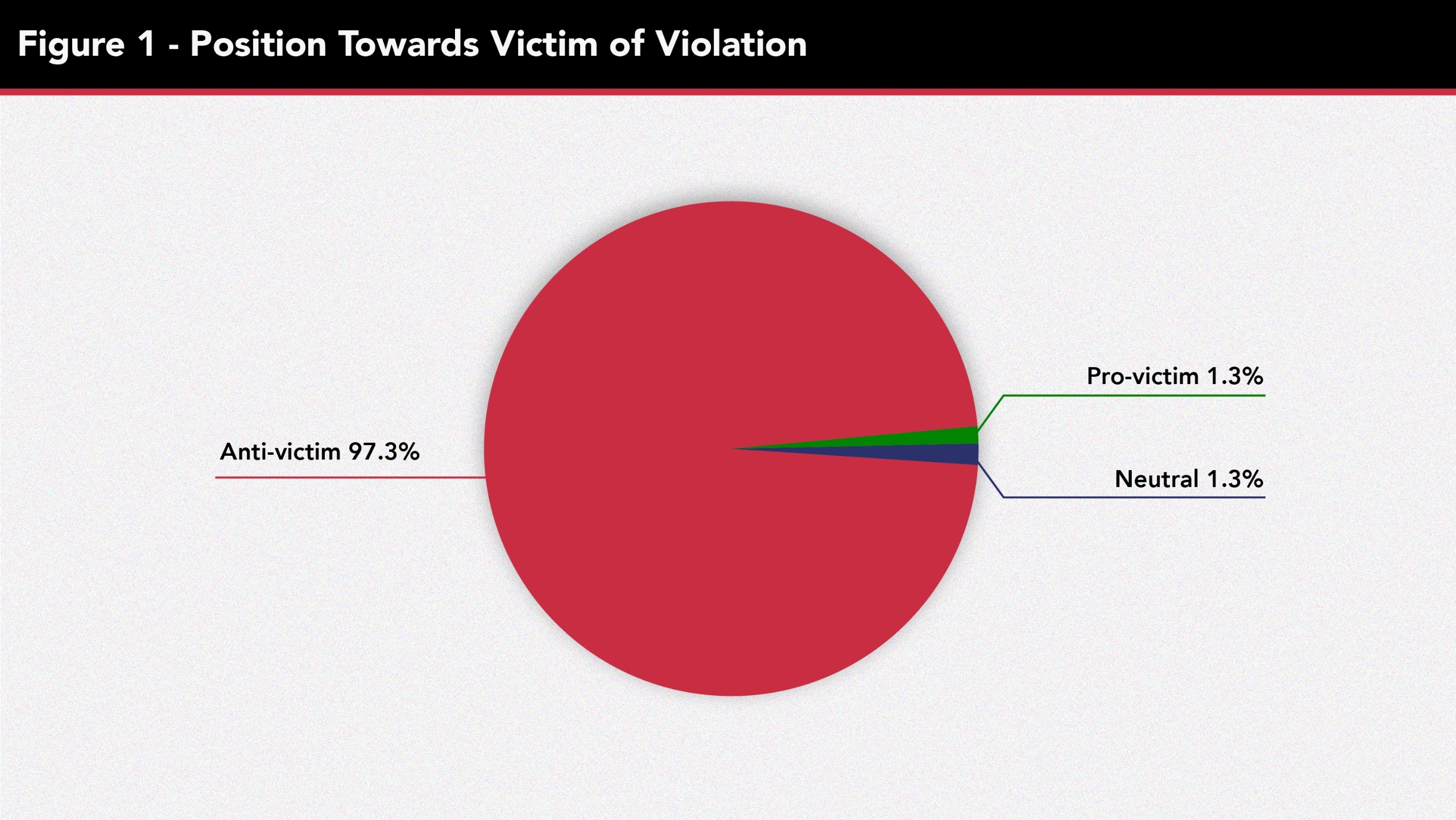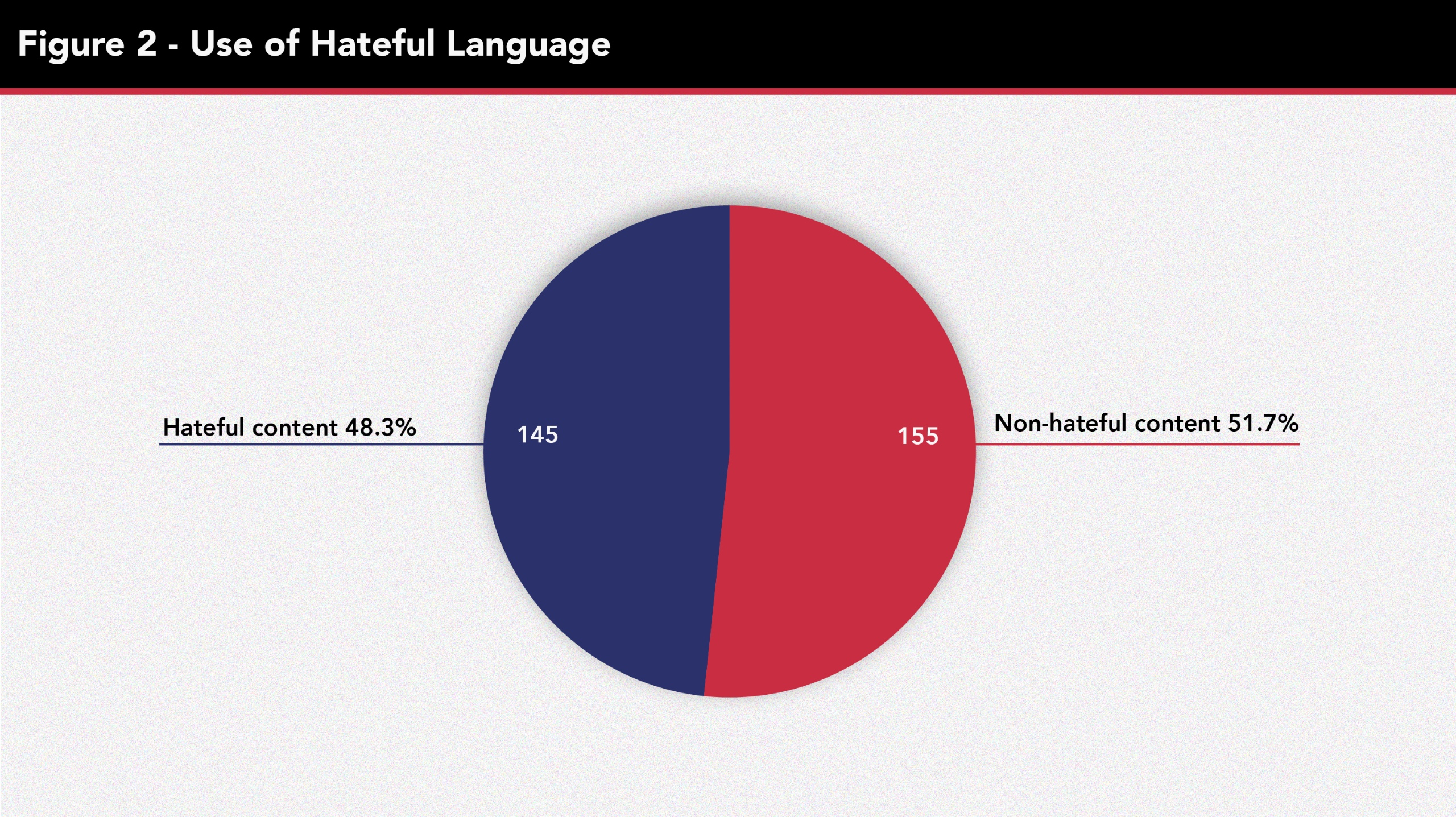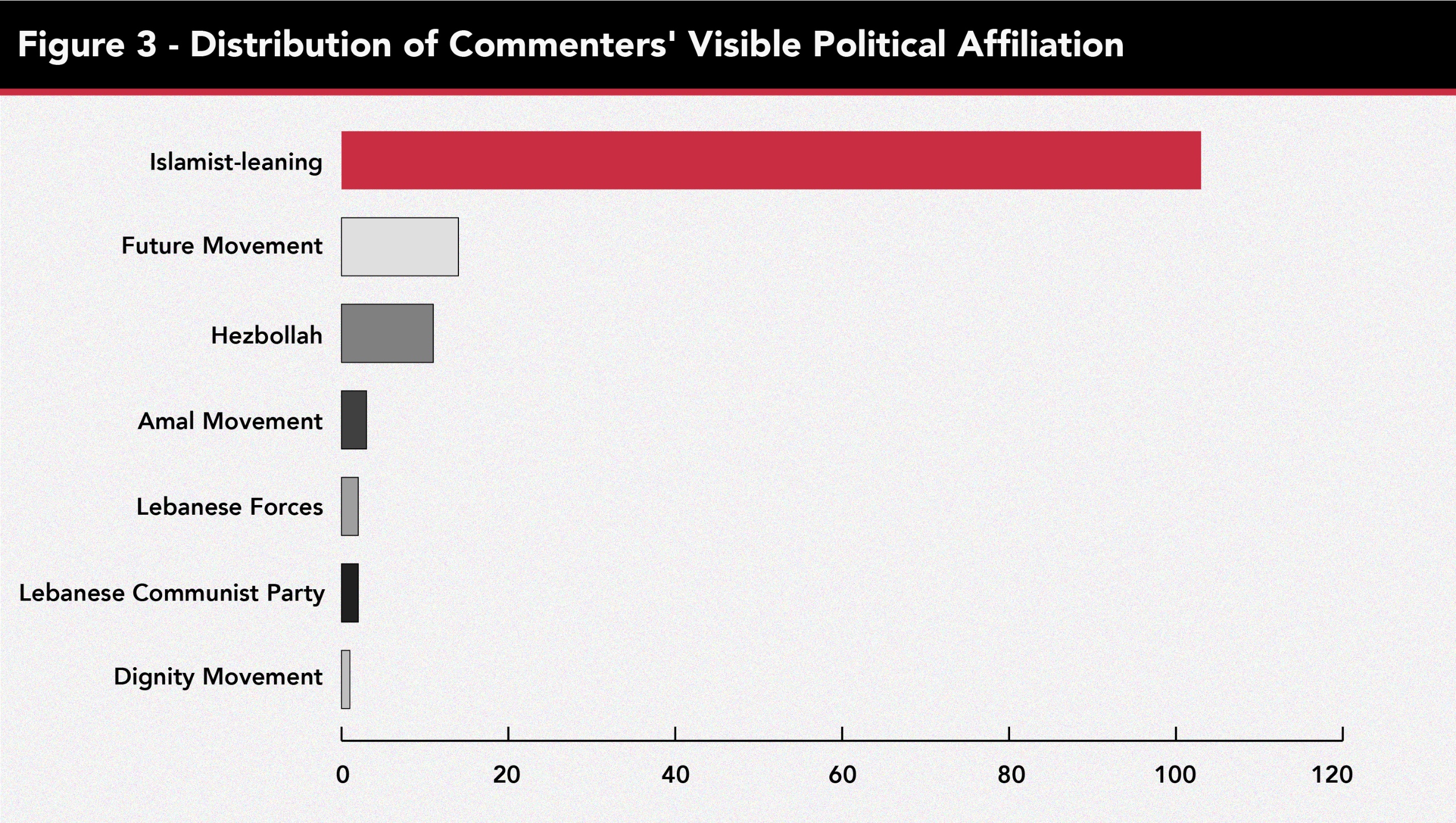
Introduction
Eight months into the Israeli aggression on Gaza and South Lebanon, the Lebanese political class has resumed its assault on liberties and marginalized groups after a brief hiatus during the military escalation in South Lebanon. This report, part of the Samir Kassir Foundation’s ongoing efforts to monitor, review, and reflect on violations against freedom of expression, aims to assess social media sentiment and conduct network analysis in response to online attacks against free speech in Lebanon.
Our study employs a framework that explores social media contributors’ stances towards the victim of the violation, the prevalence of hate speech, and the discernible political affiliations of the audience.
Context
On the evening of May 8, 2024, a leaked video from one of comedian Shaden Fakih’s stand-up performances surfaced on various social media platforms. Within hours, a massive wave of hate speech and calls for violence against Shaden inundated nearly all major social media platforms in Lebanon, alleging blasphemy. As the campaign gained momentum, a protest erupted at Al-Nour Square in Tripoli the following night, with demonstrators advocating for various gruesome forms of retribution, including imprisonment, physical and sexual assault, and even murder. Subsequently, Dar al-Fatwa and the Supreme Islamic Shiite Council initiated legal proceedings against Shaden. MP Imad Al Hout, affiliated with the Jamaa Islamiya in Lebanon, also personally filed a report against the comedian with the Public Prosecutor.
The digital attack against Shaden dominated the top trending spot on X (formerly known as Twitter) for approximately 72 hours, spearheaded by several religious figures notorious for spreading hatred and violence within Lebanese society. Incidents of stalking at the victim’s residence and intimidation directed at her family members were also reported to our Foundation.
On May 9, SKF reported on this incident through its website and Facebook account. This report examines the first 300 comments received on our Facebook post. The results of the analysis are presented below.
Analysis of Social Media Comments

Nearly all of the comments examined were “anti-victim” interactions (292 out of 300). Only four comments were “pro-victim” interactions, and another four comments adopted neutral stances. These neutral comments condemned the actions of the religious institutions and their followers without endorsing Shaden’s comedic content.

During our monitoring for hateful content, we observed a significant surge in the number of hateful comments. A striking 48.3% (145 comments) included hateful language directed at the victim, an unprecedented figure in our Facebook audience interaction analysis. Conversely, 51.7% (155 comments) used non-hateful language. However, a substantial proportion of these comments contained insults that, while not necessarily hateful or inciting violence, were still derogatory.

Out of the 300 comments analyzed, a concerning 34.3% (103 comments) displayed alignments with Sunni Islamist political movements. A smaller fraction, 4.6% (14 comments), revealed affiliation with Hezbollah, while 3.6% (11 comments) demonstrated allegiance to the Future Movement. The remaining minority were scattered as follows: two users displayed support for the Lebanese Forces, another two showed affiliation to the Lebanese Communist Party, and one comment showed affiliation with MP Faisal Karami-led Dignity Movement. Alarmingly, 54.6% of the accounts evaded explicit political association, yet the overwhelming majority echoed the vitriolic rhetoric characteristic of users affiliated with the seven aforementioned political factions.
It is imperative to underscore that virtually all comments expressing a clear political alignment opposed the victim of violation, except for a solitary supporter from the Lebanese Communist Party who voiced solidarity with the victim.
Furthermore, a staggering 54 comments among the 103 Islamist-leaning accounts featured hateful language and derogatory terms. Additionally, eight out of the 14 comments from Future Movement supporters were laden with hateful content and seven out of 12 comments originating from pro-Hezbollah supporters propagated hate speech.
Conclusion
The orchestrated campaigns of hate have tragically become a recurring nightmare, bearing striking resemblance to past attacks against artists and marginalized communities. The recent campaign against comedian Shaden Fakih mirrors similar attacks launched against comedian Nour Hajjar in August 2023. Likewise, the hate campaign targeting Syrian refugees preceding and following the tragic killing of Pascal Sleiman (see our recent report) highlights symmetric patterns relative to the campaign against the LGBTQAI+ community in September 2023. These recurring patterns outline a distressing “template” for instigated hate campaigns, which the Lebanese ruling class seems to deploy whenever they seek to assert dominance over public discourse:
